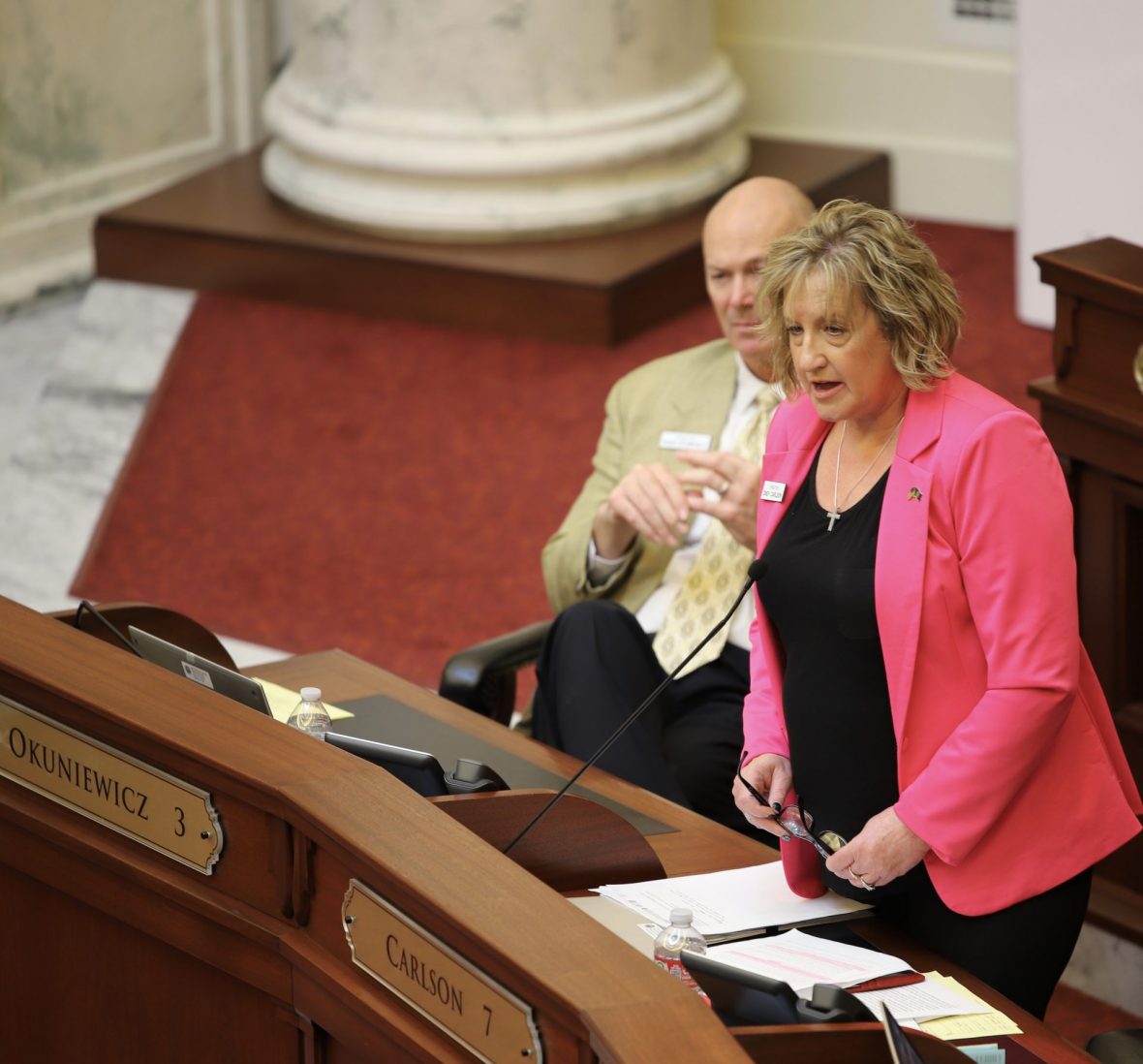
The 2024 legislative session is ending the way the 2023 session did.
And the way the 2022 session did.
With a showdown over libraries. Something that has become an informal rite of spring at the Statehouse.
On Wednesday, the Senate and the House passed a bill that would require school and public libraries to take steps to keep obscene materials away from minors. House Bill 710 now goes to Gov. Brad Little, who vetoed a library bill at the end of the 2023 session.
Little’s deadline is 10 a.m. on April 10, so the waiting and guessing game begins. We’ve been here before.
The Legislature passed another library bill on a day when unexpected news dominated the Statehouse rumor mill. A blockbuster hearing about a possible $4.7 million shortfall in the state’s Division of Vocational Rehabilitation. The continued fight over the Idaho Transportation Department’s plans to sell its State Street campus – which left the House and the Senate in open warfare, and Senate Republicans in barely private conflict.
By comparison, the library debates were just another chapter in a dog-eared volume.
With all the expected elements.
Proponents again argued that young people are vulnerable to harmful materials. Caldwell Republican Sen. Chris Trakel read aloud from an explicit book he said was available to minors, before Lt. Gov. Scott Bedke cut him off, saying Trakel had made his point.
Bill opponents again bristled at the idea that they were pro-pornography.
Seemingly out of new arguments to make for or against the bill, House members bickered with each other.
On three occasions, colleagues interrupted Rep. Kenny Wroten, R-Nampa, as he predicted bill supporters were risking a backlash at the polls. “Be careful of the echo chamber.”
Another procedural free-for-all took place moments later, as Rep. Steve Berch, D-Boise, debated against the bill. House Speaker Mike Moyle – not generally known for keeping his exasperation to himself – made his feelings known to the body.
“It’s getting stupid,” said Moyle, R-Star.
Moyle didn’t mean it this way. But for many Idahoans, a three-year legislative debate about library smut is probably, well, stupid. It seems at odds with Boise State University’s annual Public Policy Survey, released in January. According to the survey, and a representative sampling of the state’s population, 69% of Idahoans trust local libraries and librarians to choose the books that are available to patrons.
By contrast, 69 of Idaho’s 105 legislators went on record Wednesday, supporting statewide library restrictions. Nearly, and significantly, a two-thirds majority.
Which, of course, leads us back to Little.
If Little chooses to veto this library bill, he would again stand on the knife’s edge of a veto override, which requires two-thirds support in both houses.
The amended version of the library bill passed the House on a 45-24 vote with one absence: Rep. Bruce Skaug, R-Nampa, who voted for the original version of the bill. Little might have enough House votes to sustain a veto, but he doesn’t have much of an operating margin. The Senate passed the bill on a 24-11 vote, which would narrowly override a veto.
The Idaho Libraries Association is hoping history repeats itself.
“We are hearing from Idahoans across the state that they are deeply disappointed in our legislators and their votes in favor of government sponsored censorship,” ILA President Lance McGrath said Thursday. “We are actively engaged in petitioning Gov. Little for a veto of this misguided and flawed bill.”
Little’s staff is keeping quiet. They declined comment on the libraries bill – or another hot-button bill sitting on the governor’s desk, which says public employees and school staff would not be required to use pronouns that do not align with an individual’s birth gender. Little must act on this bill by Tuesday.
As of noon Thursday, Little’s office has received 1,913 calls and emails on the library bill, spokeswoman Madison Hardy said. In all, 1,788 people voiced opposition.
Little’s 2023 veto might or might not indicate what to expect this time.
When he rejected last year’s bill, Little said the threat of a $2,500 fine could pose a hardship to rural libraries. “These costs will be forced onto property taxpayers of Idaho, or cause the libraries to close to minors altogether,” he wrote.
Sponsors said they tried to respond to Little’s concerns. This year’s bill reduces the fine to $250, although it does allow parents or children to seek “actual damages and any other relief available by law.”
But any fine – even a reduced fine – nonetheless creates the kind of “library bounty system” Little called out in his 2023 veto.
Vetoes don’t take place in a political vacuum, however.
All told, 17 of Little’s fellow Republicans voted against the library bill Wednesday. Sixteen of the 17 face primary opponents – mostly challenges from the right. The only exception to this list is Sen. Abby Lee of Fruitland, and that’s because she isn’t running for re-election. If Little vetoes a library bill this time, he will be asking some of his legislative allies to make a very uncomfortable override vote, on the cusp of a May 21 primary. That’s no small request.
So don’t be shocked if Little holds his nose on the library bill – perhaps signing it while writing a transmittal letter to legislative leaders, spelling out his reservations. He’s done it before, on a number of other sensitive subjects. And don’t be shocked if Little saves some of his own political capital for another fight – such as, perhaps, the ITD budget and the State Street campus sale. (Little has told Margaret Carmel of BoiseDev.com that he fears the “reputational risk” of backing out of a sale.)
Either way, as the legislative session winds down, we’re waiting on Little and a library bill. Again.
Kevin Richert writes a weekly analysis on education policy and education politics. Look for his stories each Thursday.
